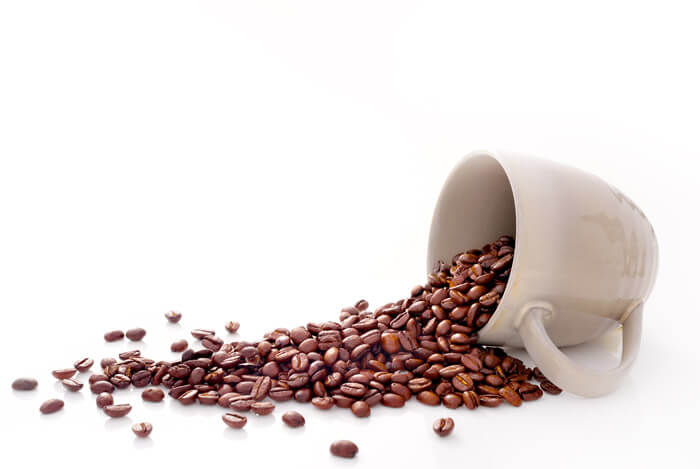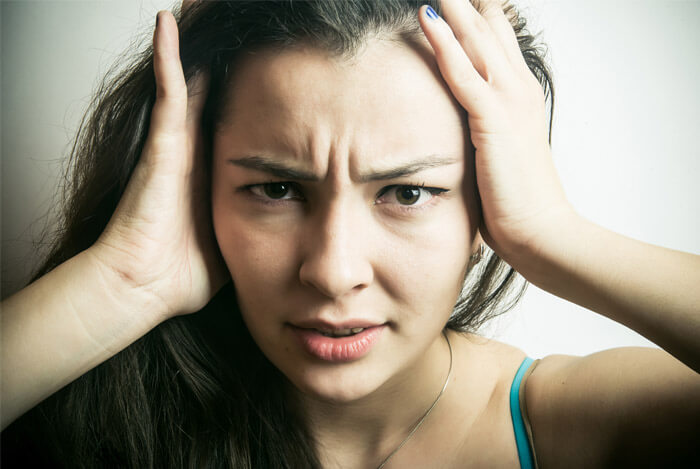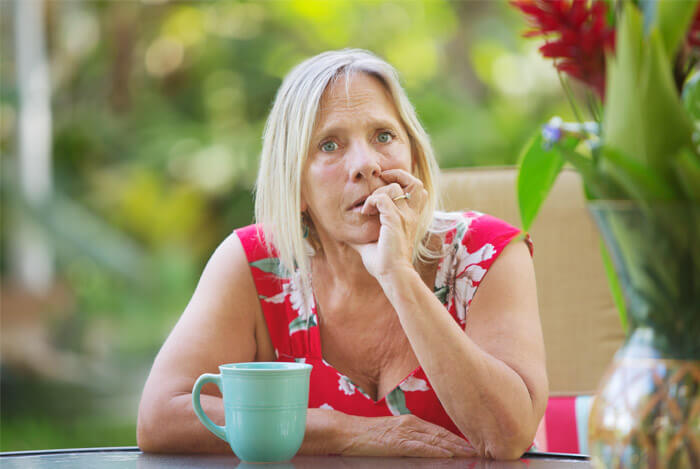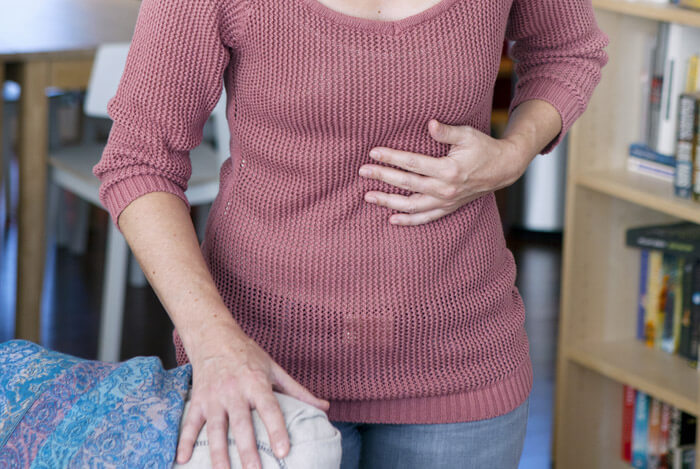Why would you want to cut down on coffee you ask?
While it’s true that it does bring a lot of health benefits, coffee doesn’t agree with everyone.
If you’re particularly sensitive to caffeine, find you’re anxious or not sleeping, are pregnant or are just straight up addicted to the stuff, you may want to consider limiting it.
Wondering exactly what will happen to your body when you reduce your intake of coffee?
From the symptoms of withdrawal, to the health benefits you can expect, let me break it down for you.
- Is Caffeine Addiction Real?
- Symptoms of Caffeine Withdrawal
- How to Ease the Symptoms of Withdrawal
- Health Benefits after Withdrawal
Table of Contents
+Is Caffeine Addiction Real?

At one time or another we’ve all said things like ‘I can’t function properly without my morning cup of coffee’.
I’m sure most of us haven’t meant it in the literal sense, but it can affect some people more than others.
According to a Johns Hopkins study that reviewed over 170 years of caffeine withdrawal research, just one coffee a day can produce caffeine dependance.
Crazy, isn’t it?
Of course, caffeine dependence isn’t on the same level as drug or alcohol dependence but, for some, it causes enough problems to convince them to kick the habit.
If this sounds like you, here’s what you can expect when you quit coffee.
Symptoms of Caffeine Withdrawal
 About half of all coffee drinkers will experience symptoms of withdrawal once they quit.
About half of all coffee drinkers will experience symptoms of withdrawal once they quit.
These symptoms will start from 12 to 20 hours after your last caffeine hit, peaking two days later. You can expect them to last about a week.
Don’t worry – later on I’ll give you a few tips to minimize discomfort.
Headache

These can range from mild to severe, although not everyone will experience a pounding headache.
Usually, you’ll only experience a caffeine withdrawal headache if you have been drinking 500 mg of caffeine per day.
That’s about five cups of coffee. A lot by most people’s standards.
But even if you’re getting caffeine from sources other than coffee (like tea or soda) they will all count towards that 500 mg intake.
Fatigue & Inability to Concentrate
 Caffeine is a stimulant, so naturally when you remove it from your daily routine, you’re going to lose the energy kick it brings.
Caffeine is a stimulant, so naturally when you remove it from your daily routine, you’re going to lose the energy kick it brings.
According to nurse Marcelle Pick, you’ll also lose the psychological boost to your concentration and mood.
Anxiety, Depression or Irritability
 If you’re giving up caffeine because it makes you depressed, anxious or even causes panic attacks, the last thing you’ll want to hear is that caffeine withdrawal can cause anxiety and depression too.
If you’re giving up caffeine because it makes you depressed, anxious or even causes panic attacks, the last thing you’ll want to hear is that caffeine withdrawal can cause anxiety and depression too.
According to the John Hopkins Medicine study I mentioned earlier, 13% of people develop ‘significant impairment’ during caffeine withdrawal.
Less serious is the irritability you might feel – when everyone and everything gets on your last nerve.
Constipation
 Caffeine tends to stimulate bowel activity so when you give up, you might feel a little (or a lot) backed up.
Caffeine tends to stimulate bowel activity so when you give up, you might feel a little (or a lot) backed up.
If this happens, you can get things moving again by eating plenty of fiber in the form of whole grains, vegetables and beans, drinking lots of water and exercising regularly.
Other Symptoms

For some, caffeine withdrawal can also cause insomnia.
How to Ease the Symptoms of Withdrawal

Here are some easy tips to help you quit your habit.
- Most experts advise quitting caffeine gradually. Cut down from 3 cups a day, to 2 and then one
- Substitute your coffee for green tea, which still contains caffeine, but much less than coffee
- Cut out sodas, which are a source of caffeine, but are also filled with sugar
- Beat the slump caused by ridding your diet of caffeine by eating healthy meals, which will provide you with a steady stream of energy throughout the day. Aim for a balance of good fats, complex carbs, and protein
- Drink enough water to stay hydrated and avoid the headaches and constipation that are symptoms of withdrawal
- Lemon water is a good replacement for a morning cup of coffee
Health Benefits after Withdrawal
The pain of cutting down on coffee may be worth it once you start to experience the benefits.
You’ll Sleep Better

Even a single cup of coffee can disrupt your nightly shut-eye so don’t be surprised if you suddenly start sleeping like a baby.
Isn’t it ironic that cutting out coffee may totally eliminate the need for an afternoon pick-me-up?
A review of studies found that regular daily caffeine intake is associated with disturbed sleep and daytime tiredness. The researchers also claim that the effect of high caffeine intake on sleep and alertness is greatly underestimated.
And a 2012 study on the impact of caffeine consumption at different times of day, found that caffeine consumed up to six hours before bed may have disruptive effects on sleep.
You May Become Less Anxious

Researchers are becoming increasingly concerned about caffeine’s role in panic attacks and other anxiety disorders, which have become the most common mental illnesses in the US.
For those who are predisposed to anxiety disorders, too much caffeine can trigger a variety of unpleasant sensations like sweaty palms, a thumping heart and ringing in the ears.
Take note of your mood in the days and weeks after you start reducing coffee. You may notice you’re much happier and calmer and it could be down to simply cutting back on coffee.
You Can Say Goodbye to Headaches

If you suffer regular headaches, and your doctor hasn’t found any cause, have you considered the possibility that it’s related to coffee?
Specifically, caffeine withdrawal?
If your body is expecting its usual 11 am caffeine hit, but you’re tied up on a call and can’t make it to the Nespresso machine, then it’s going to cause withdrawal symptoms such as a pounding head.
Dr Stacey Sigmon from the University of Vermont explains why you feel so bad – the absence of caffeine significantly changes the flow of blood and even the electrical activity in your brain.
Your Heartburn Will Stop

According to the National Digestive Diseases Information Clearinghouse, around 20% of Americans suffer acid reflux at least once a week.
And 7% of Americans experience daily episodes of heartburn – that burning feeling in your chest and sour taste in your throat.
If you’re one of those Americans, then cutting down on coffee might solve your problem – coffee is one of the top ten heartburn triggers, according to WebMD.
It has been shown in studies to increases gastro-oesophageal reflux. Even decaf causes the same increase, leading researchers to believe that it’s another component in coffee, besides caffeine, that causes the problems.
Whatever the reason, coffee is linked with heartburn so cut it out and see if you feel better.
You’ll Have Pearly White Teeth Again

As coffee is acidic, over time it may wear out tooth enamel. Long term, it means your teeth won’t look so good and may even start to decay.
And the tannins in the coffee build up on the enamel, giving you a less than charming yellow smile.
According to a study that compared tobacco and coffee-stained teeth, those stained with coffee were more resistant to tooth-brushing and more likely to become discolored again following a bleach treatment.
So there you have it – what happens your body when you cut back on coffee, from withdrawal symptoms to long-term health effects.
What’s your take on cutting back on coffee? Have anything else you’d like to share? Let me know in the comments below!
Scientific References +
- Bazzi, J. Z., Bindo, M. J. F., Rached, R. N., Mazur, R. F., Vieira, S., & de Souza, E. M. (2012). The effect of at-home bleaching and toothbrushing on removal of coffee and cigarette smoke stains and color stability of enamel. Journal of the American Dental Association, 143(5), e1–e7. https://doi.org/10.14219/jada.archive.2012.0188
- WENDL, B., PFEIFFER, A., PEHL, C., SCHMIDT, T., & KAESS, H. (1994). Effect of decaffeination of coffee or tea on gastro‐oesophageal reflux. Alimentary Pharmacology & Therapeutics, 8(3), 283–287. https://doi.org/10.1111/j.1365-2036.1994.tb00289.x
- NIMH » Any Anxiety Disorder. (n.d.). Retrieved July 14, 2020, from https://www.nimh.nih.gov/health/statistics/any-anxiety-disorder.shtml
- Drake, C., Roehrs, T., Shambroom, J., & Roth, T. (2013). Caffeine effects on sleep taken 0, 3, or 6 hours before going to bed. Journal of Clinical Sleep Medicine, 9(11), 1195–1200. https://doi.org/10.5664/jcsm.3170
- Roehrs, T., & Roth, T. (2008). Caffeine: Sleep and daytime sleepiness. In Sleep Medicine Reviews (Vol. 12, Issue 2, pp. 153–162). Sleep Med Rev. https://doi.org/10.1016/j.smrv.2007.07.004
- Johns Hopkins Medicine. (n.d.). CAFFEINE WITHDRAWAL RECOGNIZED AS A DISORDER. Retrieved July 14, 2020, from https://www.hopkinsmedicine.org/press_releases/2004/09_29_04.html










